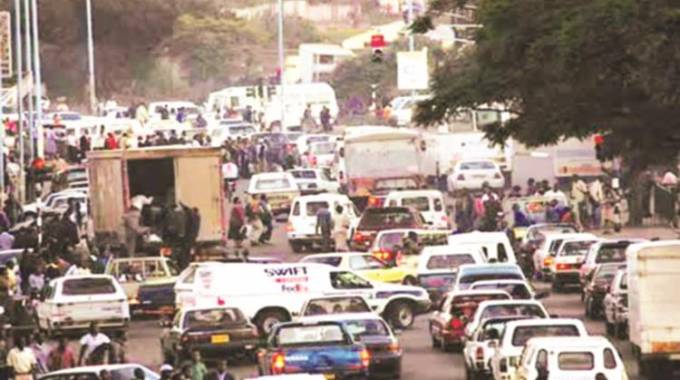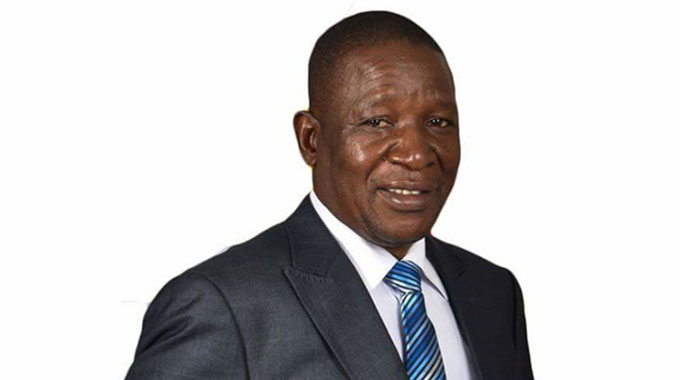Of ‘goats’ and gridlocks…Mbudzi roundabout crying out for solution

Zvamaida Murwira Mr Speaker Sir
Mr Speaker Sir, the mere thought of passing through that roundabout is as stressful as it is agonising and, needless to say, that the problem is crying out for a sustainable solution. The strategic importance of the Harare-Beitbridge Road is being undermined by the clogging of traffic at the intersection of Simon Mazorodze and High Glen roads, commonly known as Mbudzi roundabout.
It has now become a nightmare for motorists owing to perennial traffic jams which are as frustrating as they are inconveniencing. Mr Speaker Sir, if one travels along that road particularly during peak hours, it is inevitable that they will find themselves trapped in a protracted traffic logjam, which sometimes can last for several hours.
While it is true that there are several other intersections in and around Harare that are difficult to negotiate, the Mbudzi roundabout causes more headaches than any other, particularly when one considers its strategic importance not only for doing business in the country but in the region as it links Zimbabwe to several countries such as South Africa, Zambia, Malawi, Mozambique and the Democratic Republic of Congo.
There is no doubt that the traffic jam has an effect on the country’s ease of doing business.
Mr Speaker Sir, motorists can go for two hours trapped at Mbudzi roundabout as traffic from the city centre, Chitungwiza Road, western and southern suburbs is locked at the spot.
It is quite telling, Mr Speaker Sir, that there are no traffic police to control the jam or if they are there, the law enforcement agencies are overwhelmed and struggle to control the congestion and hundreds of vehicles end up locked into the roundabout and creating a long and winding queue covering more than a kilometre on all four sections of the main roads leading to it.
Mr Speaker Sir, the mere thought of passing through that roundabout is as stressful as it is agonising and, needless to say, that the problem is crying out for a sustainable solution.
What is clear, Mr Speaker Sir, is that the presence of the police alone cannot be the panacea in addressing the problem.
The challenge regarding traffic jams has been going on for several years and it is getting worse as the volume of traffic increases on our roads.
Mr Speaker Sir, Parliament’s portfolio committee on Transport and Infrastructural Development needs to tackle the problem by engaging stakeholders, in particular the Minister of Transport and Infrastructural Development, Dr Joram Gumbo.
While the problem could be addressed in the context of the dualisation of Harare-Beitbridge Road, alternative solutions ought to be pursued given the possibility that the mega project might take longer owing to the uncertainty about the commencement of works.
There is need for a short- to medium- term intervention aimed at providing respite while Government deals with dualisation of the road.
It is common cause, Mr Speaker Sir, that Government has indicated its intention to cancel a tender to Austrian company Geiger International owing to delays in the commencement of construction work.
There is also no doubt that dualisation of the trunk road might take a little longer.
In the meantime, motorists and other stakeholders like prospective investors and schoolchildren are subjected to a nightmare just to pass through.
The mere thought that one will need to pass through this roundabout is as stressful as it is frightening because besides the unbearable delays motorists have to endure, there is the risk of side-swiping as kombis try to outflank fellow motorists.
Mr Speaker Sir, a lot of production time is lost as people spend time on end in the “jam”.
Workers and schoolchildren end up reporting late for work or school owing to the traffic jam. Needless to say, most of these people trapped in the jam make various contributions to the gross domestic product of the country.
The situation at Mbudzi roundabout has been worsened by the presence of several cross-border buses that park there to load passengers mostly to Beitbridge or Johannesburg. In most cases, Mr Speaker Sir, these buses are parked along the road, others on the roadside thereby leaving little room for felow motorists to manoeuvre.
It is unfortunate that southward- bound motorists to Harare South, Beatrice, Chivhu and beyond have no alternative routes to use. Even those who might think of alternative routes, it might either be expensive in terms of fuel consumption or worse still the jam might be so bad that there is no room for a motorist to extricate himself or herself from the congestion once in it.
One would need to go via Highfield and Glen Norah before reconnecting to Beatrice Road in a bid to avoid the congestion and obviously that would require extra fuel.
Going forward, Mr Speaker Sir, as a short-term measure, there is need for increased traffic police to control the movement of vehicles to minimise congestion.
The police should not wait for the jam to build up before moving in but always be there.
While it is commendable that in most cases, there are police officers, more ought to be deployed to manage the situation.
There is also need, Mr Speaker Sir, to clear the cross-border buses that block the way and pirate taxis.
Police should ensure that there is no hitch-hiking at the roundabout as several pirate taxis, commonly known as mushika-shika, carry people either going to Beatrice, Chivhu or beyond.
While there is signage banning hitch-hiking, that rule continues to be flouted left, right and centre hence the need for police to ensure that traffic rules are complied with.
As a long-term measure, there is need for dualisation of that road. If nothing is done on time, the problem will continue to haunt motorists and the travelling public.
Both short-term and long-term solutions are required.








Comments